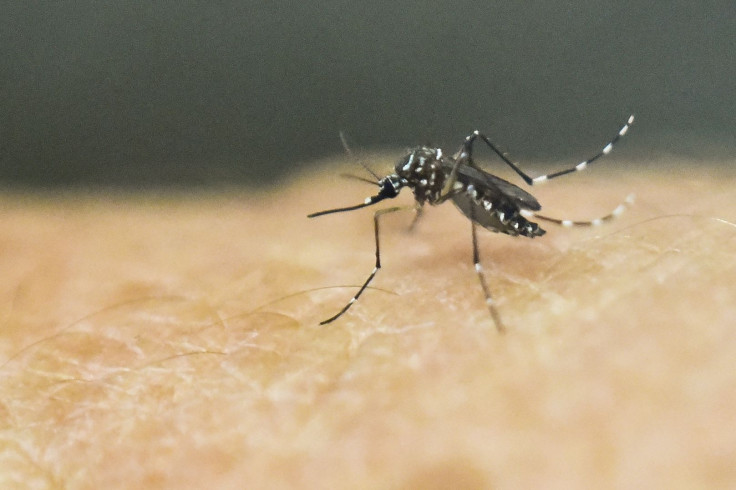New Jersey Officials Report West Nile Virus Death In Camden County
KEY POINTS
- A man in his 60s from a New Jersey county died of West Nile Virus
- West Nile Virus is the leading cause of mosquito-borne disease in the continental U.S.
- There's no vaccine or medication to treat West Nile Virus in people
A man in New Jersey died of West Nile Virus in July. The virus is said to be "unusual" in the state, but its prevalence has been increasing recently.
A resident of Camden County died of West Nile Virus in July, county officials confirmed in a statement Saturday. The unidentified man, who was in his 60s, was admitted to a local hospital with symptoms consistent with the virus on July 16. He was later discharged to a local sub-acute care center where he died.
West Nile Virus is unusual in the state of New Jersey, according to NJ.com. However, it does occur.
"West Nile Virus typically affects a small number of New Jersey residents each year, however, the prevalence of the virus has been increasing recently," Dr. Paschal Nwako, county health officer, said in the county statement. "Our thoughts and prayers are with the victim and his family. The Camden County Department of Health is continuing to work with the Mosquito Commission to ensure that additional spraying and testing will be conducted in the area."
West Nile Virus In U.S.
First appearing in the U.S. in 1999, West Nile Virus is said to be the leading cause of mosquito-borne disease in the continental United States. It is transmitted to humans through the bite of an infected mosquito, with the cases occurring during mosquito season, which is typically from summer through fall.
From 2009 to 2018, there were a total of 21,869 confirmed or probable cases of West Nile Virus disease reported to the Centers for Disease Control and Prevention (CDC) from all 50 states, the District of Columbia and Puerto Rico. Among the cases, 89% of all the patients had illness onset from July to September.
There is so far no vaccine or medication to treat West Nile Virus in people, the CDC said, noting that "most" of the people who do get infected with the disease do not feel sick. For those who do, symptoms they may experience include fever, an altered mental status, headaches and neurological dysfunction.
"About 1 in 5 people who are infected develop a fever and other symptoms," the CDC noted. "About 1 out of 150 infected people develop a serious, sometimes fatal, illness."
Prevent Mosquito-Borne Diseases
There are several important things to take note of in preventing mosquito bites. These include using Environmental Protection Agency (EPA)-registered insect repellent when outdoors, limiting time outdoors during dusk and dawn as this is when the mosquitoes are most active and using mosquito netting on strollers or infant carriers when outdoors. It's also important to wear light-colored clothes with long sleeves and long pants as mosquitoes are said to be more attracted to dark-colored clothes.
At home, it's important to clear the place of mosquito breeding sites by getting rid of standing water and installing window screens so the mosquitoes won't be able to get inside.

© Copyright IBTimes 2025. All rights reserved.






















